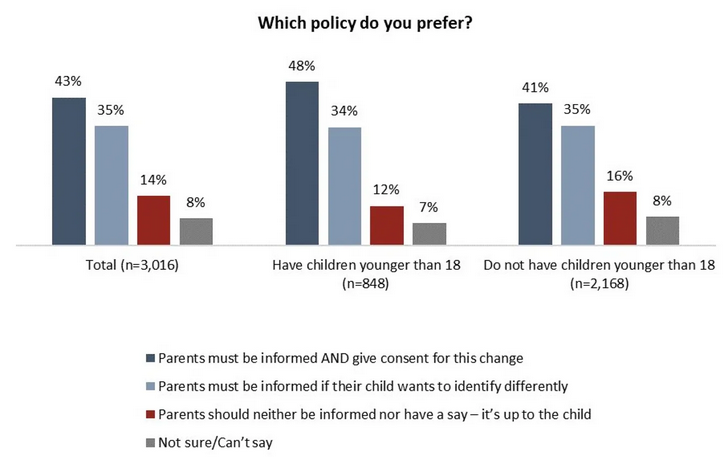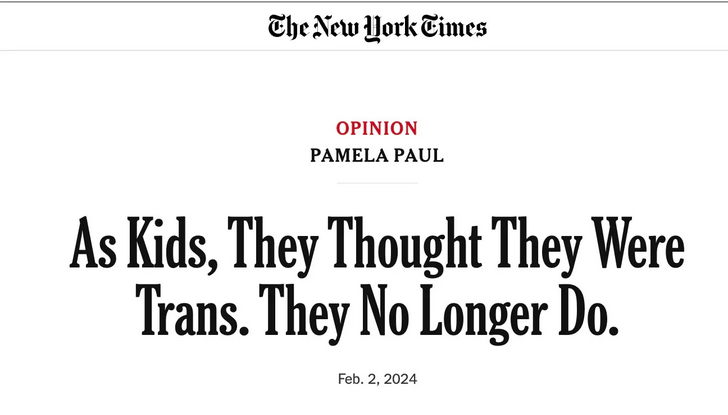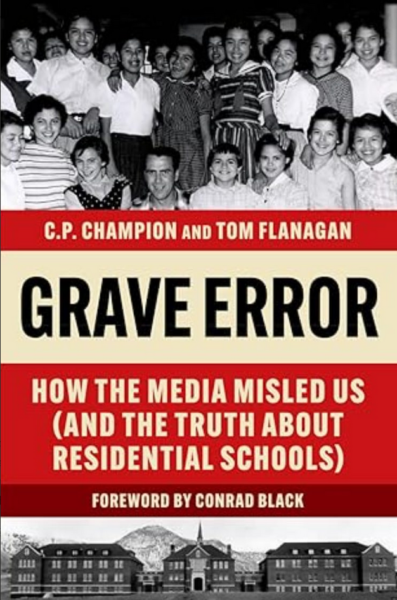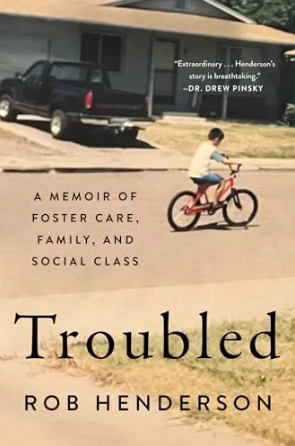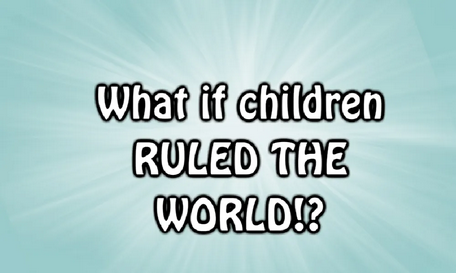seangabb
Published Feb 11, 2024This second lecture in the course contrasts Athens and Sparta, the two leading societies in Greece — one a commercial society with high levels of personal freedom and citizen participation, the other a militarised oligarchy.
[NR: Some additional information to supplement Dr. Gabb’s lecture:
– “Citizenship” in the ancient and clasical world
– Sparta had Lycurgus, while Athens had Solon … who at least actually existed
– The Constitution of Athens
– The Constitution of the Spartans
– The Myth of Spartan Equality
– Relative wealth among the Spartiates
– Sparta’s military reputation as “the best warriors in all of Greece”
– Sparta – the North Korea of the Classical era
– Spartan glossary]
(more…)
February 13, 2024
Greek History and Civilisation, Part 2 – Sparta and Athens: Contrasting Societies
February 9, 2024
QotD: “Five, Four, Three, Two, One. Thunderbirds Are Go!”
To break the BBC’s monopoly on viewing, Independent Television had been founded by Act of Parliament in 1955 as a network of fifteen regional television franchises funded by advertising. Alerted by TV Times, on that September Thursday in 1965, the nation’s children (including Your Humble Scribe) settled down to watch a man with a mid-Atlantic accent as he counted down a series of weird spaceships and aircraft with the sequence, “Five, Four, Three, Two, One. Thunderbirds Are Go!”
Although there had been earlier offerings from the same stable, such as Supercar, Fireball XL5 and Stingray, and others which followed, it was Thunderbirds that gripped my generation and has never really let go. Set in the future, the genre devised by Gerry Anderson focused on the heroic exploits of secret but benevolent organisations operating from remote or hidden bases on land, in the sky or on the moon. Equipped with advanced technology, their missions were to protect civilisation from aggression, accident and sabotage, countering devious, often extra-terrestrial opponents. It was his brother’s service in the RAF that gave Anderson a life-long fascination with flying machines. Thunderbird Field at Glendale, Arizona, where his older brother learned to fly, provided a name for the series.
In his future worlds, planet Earth is generally united under a world president, in contrast to the traumas of the recently passed world war. Each programme featured life-like puppets, filmed in what Anderson dubbed “Supermarionation”. They were tributes to his brother. It was on 27 April 1944 that these future television series were really born. Flight Sergeant Lionel Anderson never got to pilot Stingray or Thunderbird One, or fly an Interceptor from Cloudbase, for during the early hours of that April Thursday, his twin-engined Mosquito was hit by flak on a night intruder raid and crashed near Deelen in Holland. Now he and his navigator, Sergeant Bert Hayward, lie in the corner of a cemetery in Arnhem, “Mourned by his devoted parents and brother Gerald”, as the Commonwealth War Grave headstone reads.
The war traumatised Gerry Anderson, whose Jewish grandparents had fled pogroms on the Polish–Russian frontier. He would complete his own national service in the RAF and experienced two more dramatic flying events. In 1948, he saw a Mosquito — his brother’s aircraft type — crash during an air display, killing many bystanders. Later a Spitfire came in to land without its undercarriage lowered. The helplessness he felt, and need for some divine intervention, such as that provided by the World Aquanaut Security Patrol (Stingray), International Rescue (Thunderbirds), Spectrum (Captain Scarlet) or Supreme Headquarters Alien Defence Organisation (UFO), provided more seeds for the future series, where the world was united and fought external foes. In German, the last was screened as Weltraumkommando SHADO, but the concept precisely echoed the UNIT organisation of Doctor Who.
Throughout the 1950s and 1960s we were promised robots, space travel, lunar colonies and travel to Mars. Films, television series, science fiction short stories and magazines guaranteed it to the point of entitlement. Airfix plastic model kits, cardboard cut-outs on cereal packets, Matchbox, Corgi and Dinky diecast toys reinforced this expectation, underwritten by the real, manned Mercury missions of 1961–63, Gemini space launches of 1965–66 and Apollo craft of 1968–72. Gerry Anderson’s vision (shared by the American script writers of Star Trek, which debuted exactly a year after Thunderbirds on 8 September 1966) of a world government did not seem absurd to the young minds of 1965. It is partly the innocence of those years which touches us today. I, for one, still feel short-changed.
Peter Caddick-Adams, “Broadcasting anniversaries”, The Critic, 2023-11-04.
February 7, 2024
February 6, 2024
On gender issues, “Progressives may even find themselves — dare we say? — on the wrong side of history”
In the portion of The Line‘s weekly dispatch that’s visible to freeloaders, the editors discover to their horror that they have to weigh in on the gender fracas:
So to be clear, we really don’t have any problem with Alberta restricting elective gender-related surgeries on minors under the age of 17. While we are rather concerned about the use of puberty blockers and cross-sex hormones among minors, we also suspect that trying to ban these drugs for absolutely everyone under a certain age represents an overreach by the state.
Also, bluntly, we don’t think that in an ideal world, the state should be involving itself in most of this stuff at all. We want to exist in a country in which sports leagues, doctors, schools and teachers can be trusted to make sensible, evidence-based decisions on a case-by-case basis.
Take sports, for example: does a rec-league pickleball tournament need to have the same rules around trans participation as a competitive women’s rugby league? And do we really want any state regulation bulldozering over the people who are actually on the ground, and best understand the physical and cultural realities of that sport?
Or take puberty blockers.
Should we really be treating a 12-year-old who has displayed severe and crippling gender dysphoria since the age of three with the same treatment protocol as a depressed 14-year-old boy who comes into the gender clinic for the first time attached to a Munchausen-by-Proxy mom documenting every moment of her child’s transition for TikTok? Do we want politicians in Edmonton writing the precise rules that will be faithfully applied in both those situations?
Sigh.
We understand how we got here. Any discussion around trans issues is now highly insane; in a hyper-polarized, borderline hysterical moment, we actually can’t trust our institutions to possess the requisite reserve and dispassion needed to make credible and defensible decisions. These institutions are, or are perceived to be, too ideologically captured to be trustworthy.
For an example that just happened to cross our path today, take this quote from Dr. Simone Lebeuf, a pediatrician in Edmonton who specializes in gender-diverse youth. In it, she notes that restricting puberty blockers to children over the age of 15 effectively makes the treatment useless, as they would be administered at an age well past the onset of puberty.
“It’s done. The window has passed,” the doctor told City News. “And we really look at puberty blockers as an option for kids to have some space and time to make decisions about their future selves and who they might want to be as adults. Their puberty is not benign, it is not a nothing process to go through. The physical changes with puberty are permanent.”
Right off the bat, a statement like this ought to raise eyebrows, and not only because it’s a talking point we’ve already heard dozens of times on TikTok. This doctor — a physician who is actually treating children — is conflating the harms caused by artificially delaying a natural process with the apparent harms caused by the biological process itself. That logic is not sound. There is a clear difference between, say, permanent loss of sexual function and bone density caused by interfering in the natural course of puberty, and the harm of allowing a child’s body to grow an Adam’s apple despite that individual feeling like a woman.
Secondly, Dr. Lebeuf isn’t addressing the core concern with puberty blockers, above and beyond their physical side effects. The majority of children who present with gender dysphoria are not trans. Most of them turn out to be simply gay — a fact they discover via the process of growing up and sexually maturing. By delaying or denying a gender dysphoric child the opportunity to experience normal puberty, critics of these treatment protocols fear that a doctor may be preventing the very process by which gender dysphoria would resolve itself without medical intervention. Most — certainly not all, but most — gender dysphoric children would otherwise grow up to be at ease with their natal sex. But once kids start with the puberty blockers and then cross-sex hormones, this process of medical transitioning may be psychologically self reinforcing, pushing physically healthy minors into pursuing more and more unnecessary and invasive interventions with serious lifelong consequences.
In short, puberty blockers are not magic cures for gender dysphoria. They might be appropriate for some kids with lots of supports and monitoring. But they could be disastrous for others, and we have no foolproof way to know in advance which kids will fall into what camp.
This stuff is complicated, and it’s made more so because it’s difficult to study objectively in ideologically captured environments dominated by activists on all sides who muddy the waters with emotionally charged rhetoric, and confuse good science with bad. If you want to understand why people are turning to Danielle Smith instead of the Alberta Medical Association to address their fears, quotes like the one above are a prime example.
And, by the way, we include “The Media” writ large as having failed on this file. The lack of skepticism and neutrality that the media has demonstrated on even the most maximalist and unpopular positions on gender and sexuality has — to our mind — significantly contributed to the radical decline in its collective credibility.
Greek History and Civilisation, Part 1 – What Makes the Greeks Special?
seangabb
Published Feb 1, 2024This first lecture in the course makes a case for the Greeks as the exceptional people of the Ancient World. They were not saints: they were at least as willing as anyone else to engage in aggressive wars, enslavement, and sometimes human sacrifice. At the same time, working without any strong outside inspiration, they provided at least the foundations for the science, mathematics, philosophy, art and secular literature of later peoples.
(more…)
February 4, 2024
“[L]et’s face it head-on: you’re a social and political outlier, a dangerous extremist”
You, yes you are exactly the kind of dangerous extremist that mature and sensible journalists at all the right media outlets have been warning us about for years:
You’re very weird.
In fact, let’s face it head-on: you’re a social and political outlier, a dangerous extremist. Your views put you firmly on the fringe, and that fringe is becoming a real problem. For example, the Premier of Alberta, Danielle Smith, has just embraced a bunch of radical fringe policies about parent notification and consent regarding schools and transgender children, simultaneously limiting the ability of young children to have their bodies medically altered to match their declared gender — and some pretty disturbing people are supporting this crazy stuff. Look how appalled normal Canadians are by these extremist maneuvers to keep parents involved in the lives of LGBT children:
See the whole poll here, if you can stand the disgust from seeing extremist material, or see a detailed report on a poll of Californians that offers similar results.
Fortunately, the responsible mainstream leaders of the Liberal Party and NDP are standing strong with the 14% in the majority who want parents out of the lives of transgender children, rejecting the fringe views of the 78% who live at the extremist edges.
At the same time, the New York Times has just published a remarkable opinion piece on the growing concern among longtime transgender advocates, including transgendered clinicians, about the casual and rushed process by which American pediatric gender clinics are pushing children into gender transition. The essay centers on detransitioners, trans youth who change their minds and accept their biological sex.
This being the New York Times, the author is compelled to mention the true danger: “The real threat to transgender people comes from Republicans who wish to deny them rights and protections.” Ahh, but watch what comes next:
But the doctrinal rigidity of the progressive wing of the Democratic Party is disappointing, frustrating and counterproductive.
“I was always a liberal Democrat,” one woman whose son desisted after social transition and hormone therapy told me. “Now I feel politically homeless.”
She noted that the Biden administration has “unequivocally” supported gender-affirming care for minors, in cases in which it deems it “medically appropriate and necessary.” Rachel Levine, the assistant secretary for health at the U.S. Department of Health and Human Services, told NPR in 2022 that “there is no argument among medical professionals — pediatricians, pediatric endocrinologists, adolescent medicine physicians, adolescent psychiatrists, psychologists, et cetera — about the value and the importance of gender-affirming care.”
Democrats are doctrinally rigid, and a top health official in the Biden administration says proudly that there is no debate. See, everyone believes the same thing, except mean Republicans, but that’s also now understood to be a sign of excessive ideological rigidity. Then the same piece in the Times also says a whole bunch of things like this:
Studies show that around eight in 10 cases of childhood gender dysphoria resolve themselves by puberty and 30 percent of people on hormone therapy discontinue its use within four years, though the effects, including infertility, are often irreversible.
I’ve removed the links from the quoted paragraphs, because they don’t work well after cutting and pasting, but you can find them all at the link to the non-paywalled opinion piece.
Well, I guess the secret’s out:
January 16, 2024
QotD: Children and transgenderism
And then there is the disturbing “social justice” response to gender-nonconforming boys and girls. Increasingly, girly boys and tomboys are being told that gender trumps sex, and if a boy is effeminate or bookish or freaked out by team sports, he may actually be a girl, and if a girl is rough and tumble, sporty, and plays with boys, she may actually be a boy.
In the last few years in Western societies, as these notions have spread, the number of children identifying as trans has skyrocketed. In Sweden, the number of kids diagnosed with gender dysphoria, a phenomenon stable and rare for decades, has, from 2013 to 2016, increased almost tenfold. In New Zealand, the rate of girls identifying as boys has quadrupled in the same period of time; in Britain, where one NHS clinic is dedicated to trans kids, there were around a hundred girls being treated in 2011; by 2017, there were 1,400.
Possibly this sudden surge is a sign of pent-up demand, as trans kids emerge from the shadows, which, of course, is a great and overdue thing. The suffering of trans kids can be intense and has been ignored for far too long. But maybe it’s also some gender non-conforming kids falling prey to adult suggestions, or caused by social contagion. Almost certainly it’s both. But one reason to worry about the new explosion in gender dysphoria is that it seems recently to be driven by girls identifying as boys rather than the other way round. Female sexuality is more fluid and complex than male sexuality, so perhaps girls are more susceptible to ideological suggestion, especially when they are also taught that being a woman means being oppressed.
In the case of merely confused or less informed kids, the consequences of treatment can be permanent. Many of these prepubescent trans-identifying children are put on puberty blockers, drugs that suppress a child’s normal hormonal development, and were originally designed for prostate cancer and premature puberty. The use of these drugs for gender dysphoria is off-label, unapproved by the FDA; there have been no long-term trials to gauge the safety or effectiveness of them for gender dysphoria, and the evidence we have of the side effects of these drugs in FDA-approved treatment is horrifying. Among adults, the FDA has received 24,000 reports of adverse reactions, over half of which it deemed serious. Parents are pressured into giving these drugs to their kids on the grounds that the alternative could be their child’s suicide. Imagine the toll of making a decision about your child like that?
Eighty-five percent of gender-dysphoric children grow out of the condition — and most turn out to be gay. Yes, some are genuinely trans and can and should benefit from treatment. And social transition is fine. But children cannot know for certain who they are sexually or emotionally until they have matured past puberty. Fixing their “gender identity” when they’re 7 or 8, or even earlier, administering puberty blockers to kids as young as 12, is a huge leap in the dark in a short period of time. It cannot be transphobic to believe that no child’s body should be irreparably altered until they are of an age and a certainty to make that decision themselves.
I don’t have children, but I sure worry about gay kids in this context. I remember being taunted by some other kids when I was young — they suggested that because I was mildly gender-nonconforming, I must be a girl. If my teachers and parents and doctors had adopted this new ideology, I might never have found the happiness of being gay and comfort in being male. How many gay kids, I wonder, are now being led into permanent physical damage or surgery that may be life-saving for many, but catastrophic for others, who come to realize they made a mistake. And what are gay adults doing to protect them? Nothing. Only a few ornery feminists, God bless them, are querying this.
In some ways, the extremism of the new transgender ideology also risks becoming homophobic. Instead of seeing effeminate men as one kind of masculinity, as legitimate as any other, transgenderism insists that girliness requires being a biological girl. Similarly, a tomboy is not allowed to expand the bandwidth of what being female can mean, but must be put into the category of male. In my view, this is not progressive; it’s deeply regressive. There’s a reason why Iran is a world leader in sex-reassignment surgery, and why the mullahs pay for it. Homosexuality in Iran is so anathema that gay boys must be turned into girls, and lesbian girls into boys, to conform to heterosexual norms. Sound a little too familiar?
Adults are increasingly forced to obey the new norms of “social justice” or be fired, demoted, ostracized, or canceled. Many resist; many stay quiet; a few succumb and convert. Children have no such options.
Indoctrinate yourselves as much as you want to, guys. It’s a free country. But hey, teacher — leave those kids alone.
Andrew Sullivan, “When the Ideologues Come for the Kids”, New York Magazine, 2019-09-20.
January 15, 2024
Grave Error
In the latest SHuSH newsletter, Ken Whyte calls our attention to an important book on a major Canadian topic … that has been ignored by the Canadian media establishment (as one would expect if it contravenes the official narrative):
Have you read Grave Error? Have you seen it on the shelves in your local bookstore? At the library, perhaps? Did you notice coverage of it in the Globe or hear someone talking about it on CBC?
I’d bet ninety-eight out of a hundred SHuSH readers would answer “no” to all those questions.
The full title of the book is Grave Error: How the Media Misled Us (and the Truth About Residential Schools). Its authors are former University of Calgary political scientist and Harper aide Tom Flanagan and Chris Champion, editor of the Dorchester Review. The book takes strong exception to commentary by media, politicians, and Indigenous leaders on the subject of unmarked graves at a former Kamloops Indian Residential School. I first noticed it over the holidays, several weeks after publication, when it was the overall #1 bestseller on Amazon.
It’s not easy to become the top-selling book on Amazon. You’re competing against Colleen Hoover and Prince Harry and the entire world of books, published and self-published. Grave Error was the only Canadian book, fiction or nonfiction, in Amazon’s top fifty when I came across it. It’s rare to see more than two or three Canadian books in Amazon’s top fifty at any given time.
You won’t have noticed Grave Error in your local bookstore because Amazon is the only outlet that’s selling the book. You won’t have seen coverage of it because no mainstream Canadian media outlet has paid attention to it. Nor does any public library stock it. It has not appeared on any conventional bestseller list, although it has to be a Canadian bestseller — Amazon sells well over half of all books in Canada. Most Amazon sales don’t register on our bestseller lists because Amazon doesn’t cooperate with the organizations that produce the lists.
Grave Error is published by True North, a conservative news website and public policy organization. It is run by Candace Malcolm, who founded True North with her husband, Kaz Nejatian, a former Jason Kenney staffer, now COO of Spotify. It’s published a half dozen hits in recent years, several written by Malcolm herself.
January 13, 2024
Troubled by Rob Henderson
Stephanos Bibas reviews Rob Henderson’s autobiography Troubled: A Memoir of Foster Care, Family, and Social Class for the University of Chicago Law Review:
Life at the bottom is troubled. Charles Dickens, Victor Hugo, and many others have long shown us that. To understand criminal justice, education, and family law, we lawyers typically look to social scientists, and their external expertise does teach us much. But we often neglect lived experience. Occasionally, we should toggle from the dry regressions and clinical detachment of social science to the internal perspective and expertise of those who live through family breakup, foster care, disrupted schooling, drugs, and crime. And that is what Rob Henderson’s breakout memoir, Troubled, gives us: a window on troubled youth.1
Henderson, a brilliant young psychologist, illumines how harmful childhood instability is by reflecting on his own experience. He never knew his father, was abandoned by his drug-addicted mother, and bounced around foster care. After squandering much of his early education and drowning his rage in alcohol, drugs, fights, and vandalism, he managed to make his way through the Air Force to Yale and now Cambridge. But few of his friends escaped the wounds from their childhoods; many wound up unemployed, in prison, or dead. His eye is as keen as his intellect, recalling and reporting how adults in his life kept abandoning him and his fellow foster children and how they in turn acted out. As an outsider to the elites who dominate the Ivies, he also turns his critical eye on the groupthink and victimhood culture that is strongest among the most privileged. And building on literary historian Paul Fussell’s work, Henderson develops his own critique of the shibboleths that educated American elites use to set themselves—ourselves—apart while ignoring the harm to the rest of society.2
Henderson has much to teach us lawyers and legal scholars. He shows us how much we miss by focusing public policy on educational attainment and cost-benefit analysis, overlooking what is priceless: love and emotional attachment. The most important things in life can’t be quantified; at best, outcomes are mere proxies for them. We are more than our résumés! His account undermines our persistent habit of viewing humans as fully informed rational actors — a habit that makes much more sense in corporate law than in criminal law and the like. He showcases how poorly used adult autonomy harms children, leading to broken homes, drug addiction, numbness, and rage.
Lastly, Henderson critiques “luxury beliefs”, the term he coins for sociological opinions that are popular only among those who need not worry about their own survival. These beliefs are status signals to the educated elite who are not harmed by the fallout from any cultural shifts they might cause. But these beliefs corrode the social structures that children need to develop. (He could do more to develop the causal nexus to social harm, but his claims are still powerful.)
In short, Henderson’s memoir powerfully challenges prevalent views of education, family policy, and class. It shows how we hyperfocus on educational outcomes and other quantifiable goals at the expense of softer emotional goods. And it does it all in a plainspoken, understated voice that illustrates his points from his own lived experience and that of his buddies. Many will disagree with Henderson’s conclusions, of course, but scholars should grapple with his challenge.
Part I of this Review summarizes Henderson’s long journey from foster care to Yale. Part II canvasses his argument that adult instability breeds chaotic childhoods, leaving neglected kids to raise themselves in Hobbesian competition, impulsive indulgence, or reckless rage. Part III then develops Henderson’s signature concept of luxury beliefs and how nonjudgmentalism backfires on those at the bottom. Though one can quibble with some of his causal claims, his thrust is compelling. Finally, Part IV considers how Henderson’s account suggests reorienting some criminal justice, education, and family law reforms toward children’s need for stable structures to guide them.
1. Rob Henderson, Troubled: A Memoir of Foster Care, Family, and Social Class (forthcoming 2024) (on file with publisher). All further citations to this work are by page number in parentheticals in the text.
2. See generally Paul Fussell, Class: A Guide Through the American Status System (1983).
January 1, 2024
QotD: The Panto
One of the worst things my parents ever did was force me to go to the panto. It was Angela’s Ashes levels of misery memoir fodder.
What made it worse was that I was about 14; I’d almost managed to get through childhood without experiencing this strange British tradition and then, just at the age when you’re most vulnerable to cringe, I got dragged in. Anyway, I think I’m over it now.
Pantomime is one of those very British things that makes me feel a strange sense of alienation from my countrymen, like celebrating the NHS or twee. I’m glad that other people enjoy it, and that it brings a lot of work to actors and to theatres during the Christmas period. I just personally don’t get it.
For those who don’t know about the ins and outs of our island culture, panto is a sort of farcical theatre featuring lots of sexual innuendo and contemporary pop culture references; I think when I watched it there must have been one or two ex-Neighbours stars because they all finished by singing the theme tune.
A key part of this British institution is drag, with men playing the roles of Widow Twankey and the Ugly Sisters. Drag is quite an established tradition in England, such a part of popular entertainment that there is even a photograph of British soldiers in dresses fighting in the Second World War.
Pantomime is thought to have evolved from the medieval Feast of Fools, a day of the year (around the Christmas/New Year period) when social norms would be inverted; laymen would be elected bishops, lords would serve their retainers drinks, and men and women would even swap roles. Social norms could be temporarily broken, which continues today in the often risqué humour incongruously aimed at family audiences (hilariously portrayed in the Les Dennis episode of Extras.)
This kind of drag is obviously humourous, the aim being for the men to look as ridiculous as possible; think of the ungainly Bernard Bresslaw in Carry on Doctor. It is very different to the later pop culture gender fluidity pioneered by David Bowie in which males might be presented as beautifully feminine, even alluring; that was aimed at challenging and disturbing the audience, while panto is aimed at amusing and reassuring. Indeed, the whole point of spending a day inverting social norms is that, by doing so, you are implicitly accepting and defending those social norms.
This form of drag is obviously quite different to the more modern drag queen, a form of entertainment that can be far more explicit and which has in the 21st century become yet another one-of-those-talking-points, chiefly because people seem so keen on letting children watch it.
Ed West, “The last conservative moral panic”, Wrong Side of History, 2023-02-08.
December 19, 2023
Overthinking Thomas the Tank Engine: What Actually Is Thomas?
Jago Hazzard
Published 13 Aug 2023Peep peep!
(more…)
December 15, 2023
QotD: Delayed onset adulthood
Don’t even get me started on supposedly-adult men of voting age who are infatuated with My Little Pony (a.k.a. “Bronies”). Great Napoleon’s bleeding ulcers, it actually turns my stomach to read about these fucking losers.
At the risk of sounding all White Christian Male and stuff [irony alert], allow me to remind everyone of this excellent precept from Corinthians:
When I was a child, I spake as a child, I understood as a child, I thought as a child: but when I became a man, I put away childish things.
Except that men aren’t doing any of that. Instead, they’re clinging to the artifacts of their childhood, hoping that Mommy will be there to keep the Big Bad Wolf/Zombies away.
What will inevitably happen is calamity. As Charles Norman puts it: “The world is running out of grown-ups. It will probably take tragedies and a prolonged era of diminished affluence for people to grow up.”
Like I said: calamity.
Kim du Toit, “Kiddies”, Splendid Isolation, 2019-08-22.
December 1, 2023
“I considered shopping a proposal for an anti-helicopter parenting book called Your Kid Sucks, but for some strange reason my agent dissuaded me”
Freddie deBoer on the modern phenomenon of “helicopter parenting”:

Collapse in childhood freedom – Graphic showing the diminishing “free ranges” of each generation of an English family.
For the New York Times, Jessica Grose details how new online grading systems allow parents to track the progress of their children not from year to year, semester to semester, report card to report card, but week to week or even day by day. The results are depressingly predictable, in today’s parenting environment. There’s stress for students and teachers alike, a collapse in interest in learning in and of itself, an adversarial relationship between parents and teachers, and the rise of “hyperchecking”, where parents complain about each and every single grade that isn’t an A. The piece is about K-12, but Grose notes that parents are increasingly seeking access to college online gradebooks, which seems crazy to me; as someone who’s taught a lot of college classes, the idea of someone constantly monitoring a student’s grade with the mindset of a litigious lawyer sounds awful. But then again, perhaps I shouldn’t be surprised. Here’s a piece about helicopter parenting extending into the college years to the extent that the parents are arranging social calendars. Of their college-age children.
I’ve been thinking about these issues for some time — I considered shopping a proposal for an anti-helicopter parenting book called Your Kid Sucks, but for some strange reason my agent dissuaded me — and what I can’t stop wondering is why parents don’t stop doing this stuff for the good of their kids themselves. There are social and philosophical critiques to be made of helicopter parenting, some very good ones. But we never need to wonder why people choose to pursue selfish interests over social or philosophical ones. What consistently surprises me is that parents keep puttering along in the clouds above their kids, binoculars in hand, when there seem to be really compelling arguments against doing that for reasons that are completely aligned with the selfish interests of the kids. I get ignoring social responsibility for the sake of your kid; it’s hard to understand ignoring what’s best for your kid for the sake of your kid.
There’s the social case to be made against helicopter parenting, of course. If you wanted to define the essential moral project of human beings in the broadest terms possible, you could do worse than “put others before self”. Aggressive parenting allows people to juke this basic logic — parents who act as though their child’s best interest is the only important criterion are, in a literal sense, putting someone else before themselves. “Hey, I may be disadvantaging already-disadvantaged kids with my hyperactive parenting, but I’m doing it for a greater cause than myself.” And the intrinsic (genetic) dedication to the good of one’s child obliterates the broader social concerns once freed from the guilt of traditional for-myself selfishness. But hyper-parenting still reflects selfishness, putting your own kin above the interest of everyone else, especially in cases where the harm done to society is a lot bigger than the benefit to your child. Academic malfeasance like the Varsity Blues scandal has obvious negative social consequences, for example, while those specific kids faced only going to slightly less competitive or desirable schools had there been no fraud in their applications. Less directly illicit behavior, like grade grubbing — which, among other things, inevitably benefits the students with the parents who are the most aggressive and who hold the most social capital — are a greyer area, but ultimately do more to unbalance an already-unbalanced system. If these parents were confronted with the opportunity to do this for themselves, I genuinely think that most of them would decline, out of a sense of social obligation. But once it’s “for my kid”, it’s no holds barred.
I think absolutely all parenting contains a little narcissism, and that’s OK; it’s probably a part of our genetic endowment that helps compel parents to nurture their children, and anyway parenting is a tough job that we shouldn’t expect people to perform with no sense of self-satisfaction. But it is one of those quirks of our social order that the parents who are the most politically progressive, who most ardently advocate for a society that serves all of our people, are often also the most unapologetic about putting their thumb on the scale for their own children. Plus, the sort of second-order selfishness of parenting allows for the sidestepping of more philosophical objections to helicopter parenting. These objections are less about the social good of others and more about the content of our individual characters. These include personal values such as the notion that we just should, as human beings, be able to live with a degree of independence in youth; that we just should experience hardship and the consequences of our actions to better appreciate what it means to be alive; that we just should, as human beings, secure our own interests to whatever degree we’re able, without help from above, including in school; that we just should operate as though we are but one in a broad collection of human beings, all of whom matter as much as we do, for our own spiritual good. The thing about these personal values is that they’re only motivating if they are indeed personal — that is, these might sway an individual, but not even occur to their parents, and in our system parents have remarkable ability to obstruct the agency of their kids. They can do the dirty work the kids might not do for themselves.
November 24, 2023
It sometimes seems that the only thing that isn’t “violence” these days is actual violence
David Sedaris at The Free Press:

“Gen Z” by EpicTop10.com is licensed under CC BY 2.0
Words, we are now regularly reminded, are violence. So too is silence. I read not long ago that capitalism is violence, as is misgendering someone. Ignoring someone is violence, but so too is paying them attention. A friend recently called on one of her assistants to deliver a statistic during a business meeting and was later charged with “casual violence”. Apparently Deborah needed to give advance warning that she was going to ask a question, one that might possibly put her employee — someone who was well paid to know stuff and be able to spew it forth — on the spot.
Who are these hothouse flowers, all so easily and consistently wounded? People whose parents never hit them, that’s who. People who don’t know what real pain is, but still want to throw the word around. When I was a child, a slap across the face was too minor to qualify as “casual violence”. It was simply what you got for talking back or holding everyone up. It never hurt all that much; what stung was the swiftness of it, the surprise. Who knew my mother could move so fast, like someone belted in the martial arts. I don’t feel like it traumatized me to be knocked around a little. Blood was rarely drawn. No limbs were broken. Could my parents have made their point without resorting to violence? Probably, but it would have taken more time, and with six kids to dress and get out the door that was a precious commodity. I see parents now who worry they’re being abusive if they don’t spend at least an hour putting their child to bed. An hour! I said to my sister, Amy, “Do you remember ever once being tucked in? Can you imagine Mom and Dad reading to us, or singing? Can you imagine them kissing us?”
“Ugh,” she said. “Stop!”
And look at us! We’re fine. We can handle stuff. We never get offended by anything.
Our parents thought we were okay, at best, and I think that really helped us in the long run. Ask someone now if they have kids, and they’re pretty much guaranteed to use the word amazing, as in “I have an amazing six-year-old daughter.”
“Amazing because she just discovered a cure for herpes or because she speaks three words of Spanish,” I always want to ask. “I mean, just how low have you set that bar?”
One of the worst things that’s happened to us as a country is that people are having fewer children — 1.8 as opposed to five 50 years ago. Sure, it’s good for the environment — fewer people means less demand for resources. The problem is that single children receive a freakish amount of love and attention. Most graduate at least twelve times before leaving high school. Their every move is recorded and celebrated, and it gives them an outsize sense of their own importance.
The solution isn’t for every couple to start having five kids again, but maybe for one chosen couple to have five, and the other four couples to go without — either have a full litter you can’t pay that much attention to, or nothing at all.
If our schools are a mess it’s in large part due to these parents who think their kids are special, who get mad if you contradict their brilliance, if you give them a bad grade or, God forbid, try to take their phones away. Had one of my teachers told my mother that I was acting up in class, she’d have said, “Thank you so much for letting me know.” Then she’d have come to wherever I was — in front of the TV, or at the side of the TV making my way to the front of it — and slapped my sister Gretchen so hard her eyes would have crossed.
“What was that for?” Gretchen would have asked.
“Oops, wrong kid,” my mother would have said. Then she’d have slapped me twice as hard to make up for her mistake.


